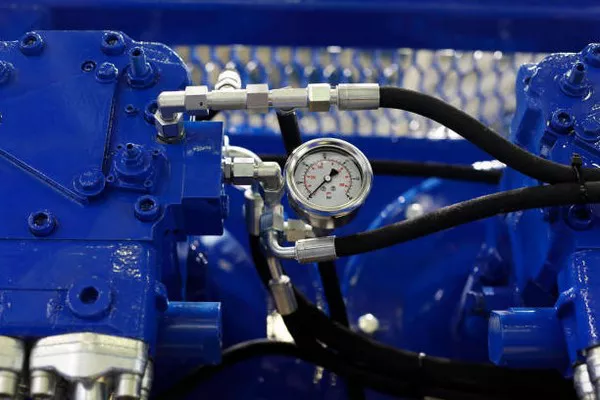In the realm of HVAC (Heating, Ventilation, and Air Conditioning) systems, the compressor stands as a critical component, functioning as the heart that pumps life into the cooling process. In this comprehensive guide, we’ll delve into the inner workings of compressors, unraveling the technology behind them and their indispensable role in maintaining comfortable indoor environments.
What is a Compressor in HVAC?
At its core, a compressor in HVAC is a mechanical device designed to elevate the pressure of a refrigerant gas, facilitating the transfer of heat in the cooling cycle. This transformative process is fundamental to the efficient functioning of air conditioning and refrigeration systems.
Types of Compressors:
Reciprocating Compressors:
Reciprocating compressors operate much like a piston in an engine. They utilize a piston-cylinder arrangement to compress refrigerant gas. These compressors are known for their reliability and are often found in smaller HVAC systems and residential air conditioners.
Rotary Compressors:
In contrast, rotary compressors use rotating mechanisms to compress refrigerant. With fewer moving parts, these compressors are more compact and operate with less vibration, making them suitable for smaller spaces and ductless mini-split systems.
Screw Compressors:
Screw compressors are commonly employed in larger HVAC systems. They use two helical rotors to compress the refrigerant, offering greater efficiency and reliability, especially in industrial and commercial applications.
Scroll Compressors:
Scroll compressors feature a spiral-shaped orbiting scroll and a stationary scroll, creating a progressively reduced refrigerant volume. This design enhances efficiency and minimizes vibration, making scroll compressors prevalent in residential and light commercial HVAC systems.
Working Principle of a Compressor:
The operation of a compressor in HVAC involves a cyclic process of compression and expansion. During compression, the refrigerant gas is pressurized, causing it to release heat. This high-pressure, high-temperature gas then flows through the system, eventually reaching the condenser coil.
In the condenser coil, the refrigerant releases its heat to the surrounding air, transforming into a high-pressure liquid. The liquid then moves to the expansion valve, where it undergoes a sudden pressure drop, resulting in rapid expansion and cooling. This cool, low-pressure liquid then enters the evaporator coil, absorbing heat from the indoor air and completing the cycle.
Importance of Compressors in HVAC Efficiency:
The efficiency of an HVAC system is intricately tied to the performance of its compressor. A well-maintained and appropriately sized compressor ensures optimal heat exchange, energy utilization, and overall system efficiency. Regular maintenance, such as cleaning coils and replacing air filters, plays a vital role in sustaining compressor efficiency and extending the lifespan of the entire HVAC system.
Variable Speed Compressors and Energy Efficiency:
As technology advances, variable speed compressors have emerged as a game-changer in HVAC systems. Unlike traditional compressors that operate at a fixed speed, variable speed compressors can adjust their speed based on the cooling demands of the space. This results in significant energy savings, enhanced comfort, and improved humidity control.
Variable speed compressors are particularly beneficial in climates with fluctuating cooling requirements, as they can operate at lower speeds during milder conditions, reducing energy consumption without compromising comfort.
Common Issues and Troubleshooting:
Despite their critical role, compressors can encounter issues over time. Common problems include refrigerant leaks, electrical malfunctions, and mechanical failures. Regular professional inspections, timely repairs, and maintaining adequate refrigerant levels are essential for preventing these issues and ensuring the longevity of the compressor.
Symptoms of Compressor Issues:
Insufficient Cooling: Reduced cooling capacity can indicate compressor inefficiency.
Unusual Sounds: Noises such as grinding or clanking may signal mechanical problems.
Tripped Circuit Breaker: Electrical issues can lead to the tripping of circuit breakers.
Professional Troubleshooting: When faced with compressor issues, it’s advisable to enlist the expertise of HVAC professionals. They can conduct thorough diagnostics, identify the root cause of the problem, and implement precise solutions, whether it involves repairing or replacing the compressor.
Conclusion:
In the intricate dance of HVAC technology, the compressor takes center stage, orchestrating the flow of refrigerant and the regulation of temperature. Understanding the types, working principles, and maintenance requirements of compressors is essential for homeowners,facility managers, and HVAC professionals alike. As we embrace the evolution of HVAC systems, with innovations like variable speed compressors leading the way, a well-informed approach ensures that our cooling systems not only meet our comfort needs but also contribute to energy efficiency and sustainability.

